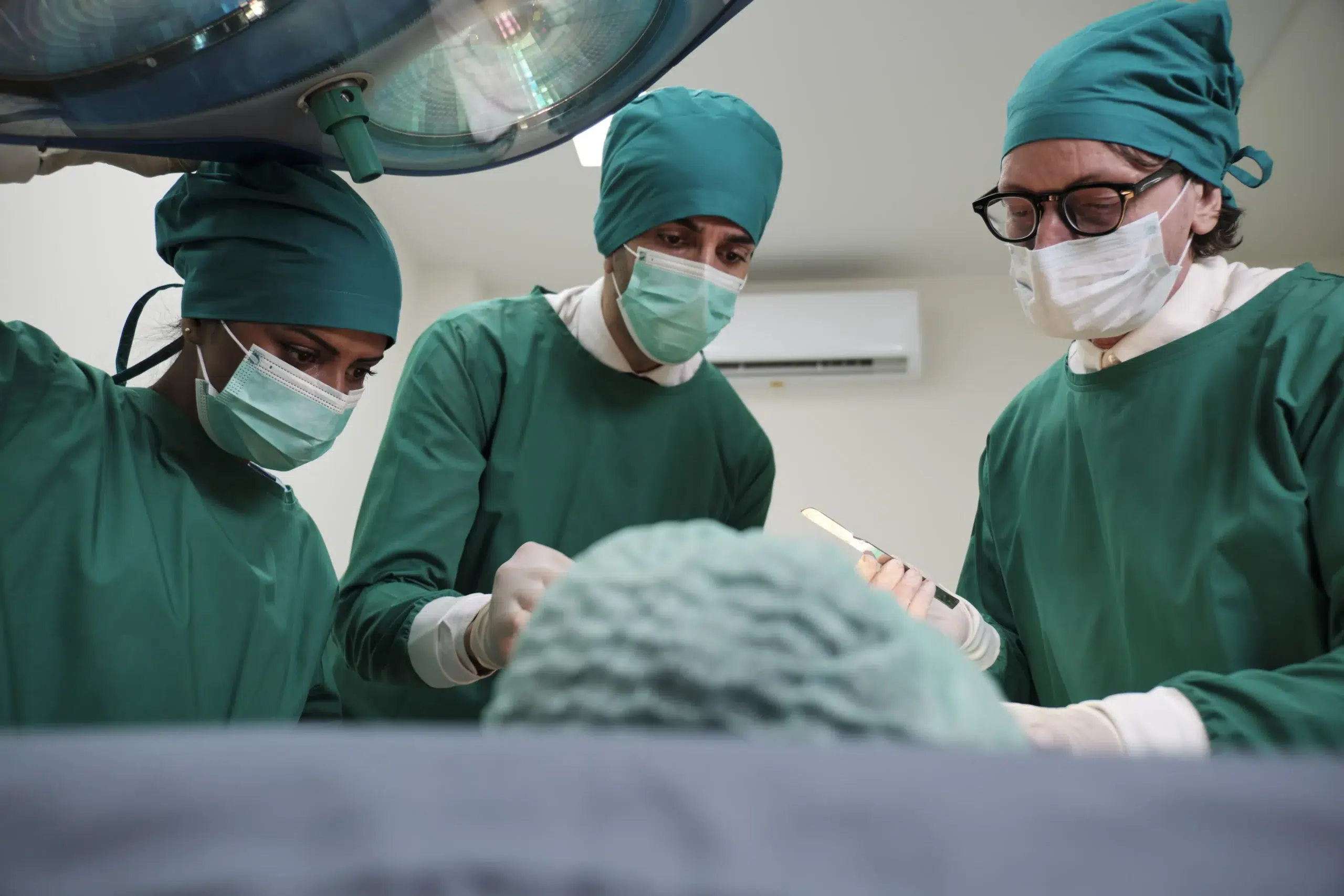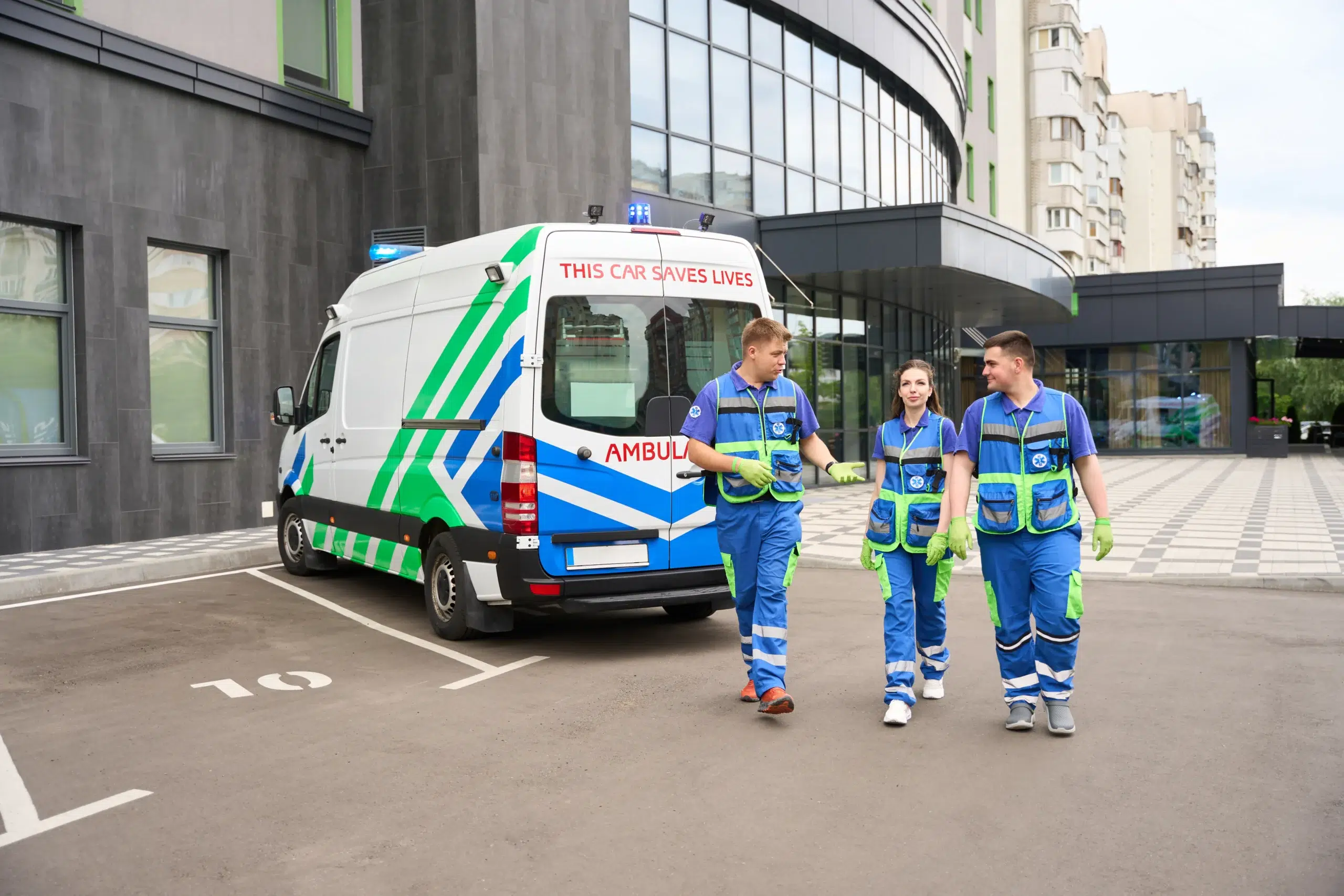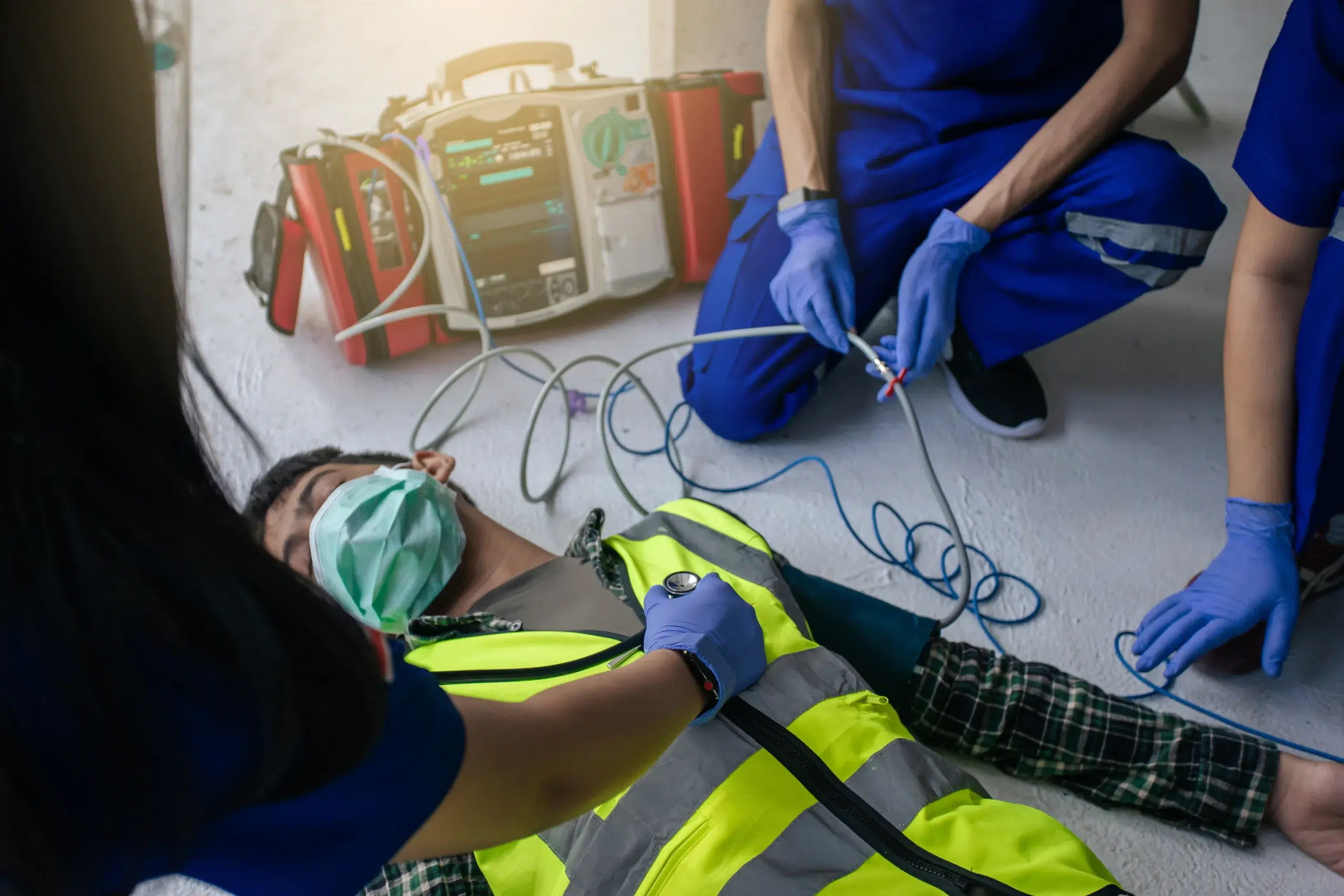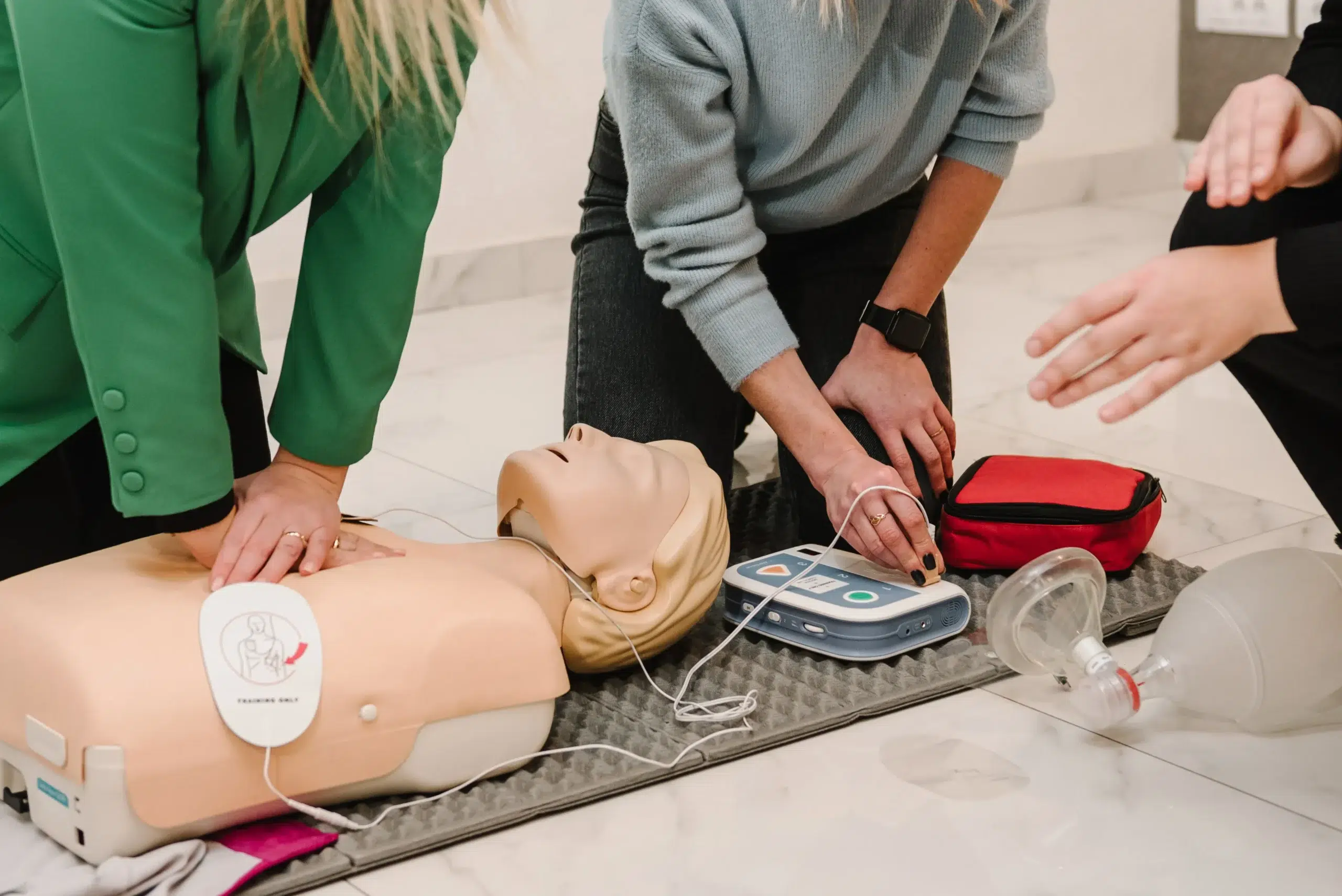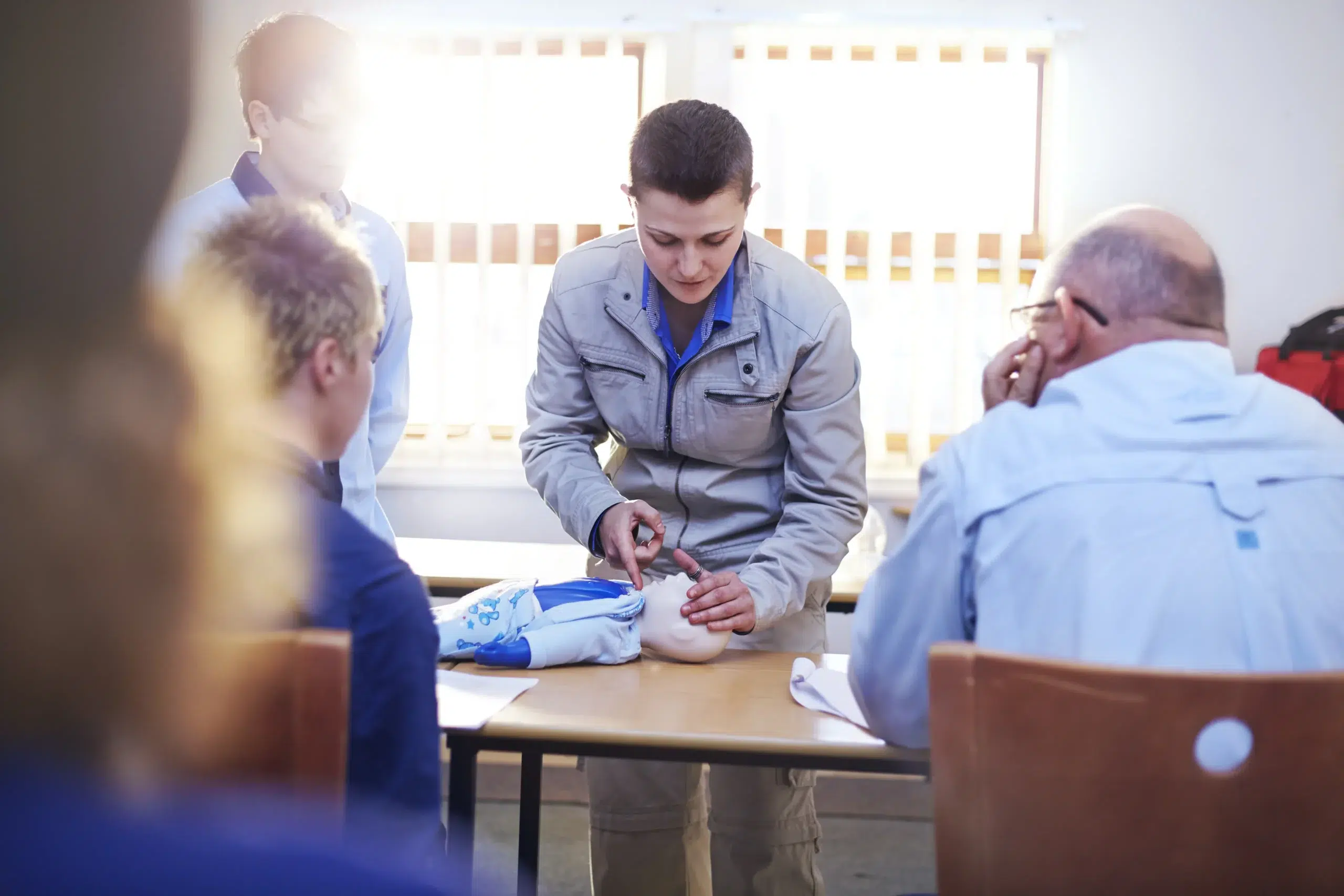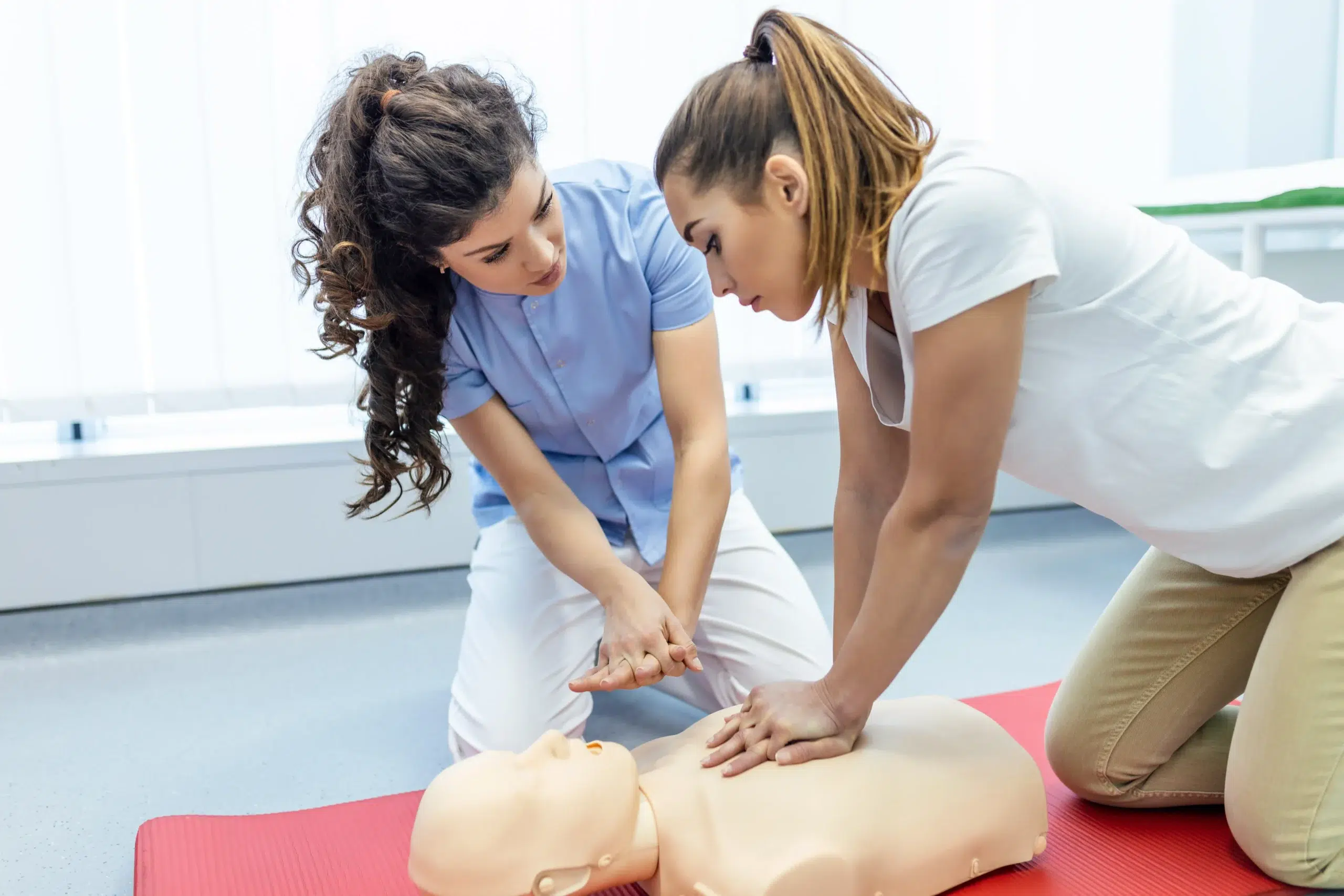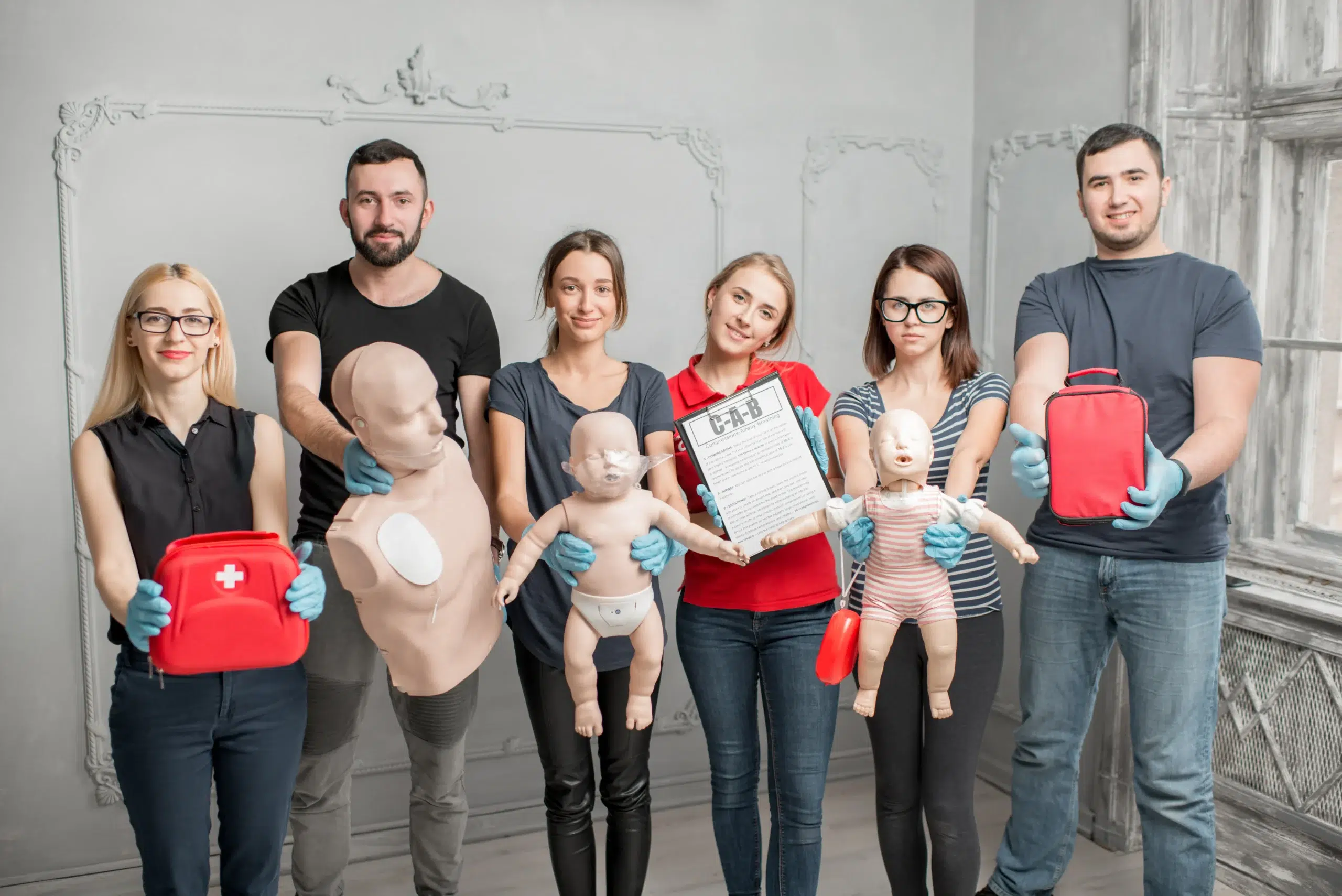When a child’s life is on the line, you need more than just basic life support skills—you need specialized training. Pediatric Advanced Life Support (PALS) certification provides healthcare professionals with the advanced knowledge and techniques to manage pediatric emergencies effectively. This article explores the critical role of PALS in improving patient outcomes and enhancing team dynamics during emergencies. We’ll guide you through the process of finding the right PALS course in Walnut Creek, discussing course formats, costs, and what to expect during training. Whether you’re a seasoned healthcare provider or just starting your career, understanding the value of pediatric advanced life support in Walnut Creek is essential for delivering the highest quality care to young patients.
Key Takeaways
- PALS is essential for pediatric care: It gives healthcare providers the skills to confidently handle emergencies in infants and children, directly impacting patient outcomes. This specialized training focuses on the unique needs of young patients, covering everything from airway management to recognizing cardiac rhythms.
- Find the right PALS course: Consider factors like instructor experience, course format (online, in-person, or blended), and cost. Look for providers like Pleasant Hill CPR Classes who offer a low price guarantee and convenient scheduling options. Asking potential providers specific questions about their curriculum and teaching methods is always a good idea.
- Stay current with your PALS certification: Renew your certification every two years and take advantage of continuing education opportunities to maintain your skills and knowledge. This ongoing learning ensures you’re always prepared to deliver the best possible care in pediatric emergencies.
What is Pediatric Advanced Life Support (PALS)?
Pediatric Advanced Life Support (PALS) is a specialized course designed to equip healthcare providers with the knowledge and skills to effectively manage life-threatening emergencies in infants and children. The PALS certification program focuses on the early recognition and intervention for pediatric patients requiring immediate medical attention, emphasizing a systematic approach to assessment, treatment, and stabilization. Pleasant Hill CPR offers PALS certification courses.
Definition and Purpose
PALS training aims to reduce child mortality and morbidity by standardizing the approach to pediatric emergencies. The course emphasizes a team-based approach to resuscitation, highlighting the importance of clear communication and coordinated efforts among healthcare professionals. This structured approach ensures consistent, high-quality care during critical situations. The ultimate goal is to improve outcomes for pediatric patients facing respiratory distress, shock, or cardiopulmonary arrest. For healthcare providers in Walnut Creek, Concord, and Pleasant Hill, convenient PALS courses are available.
Key Skills Taught in PALS Training
PALS courses cover a comprehensive range of skills essential for managing pediatric emergencies. Participants learn to quickly assess a child’s condition, provide effective breathing support, and perform defibrillation when necessary. The training also emphasizes the importance of teamwork and communication in high-pressure medical situations. Through hands-on practice and simulated scenarios, healthcare providers develop the confidence and competence to respond effectively to various pediatric emergencies. PALS courses often incorporate case studies and interactive discussions to reinforce learning and promote critical thinking. Contact Pleasant Hill CPR Classes to learn more.
Common Pediatric Emergency Scenarios
Children have unique physiological differences from adults, requiring specialized care during medical emergencies. PALS training addresses these differences, preparing healthcare providers to handle a variety of situations. The curriculum covers pediatric assessment, airway management techniques, and the recognition and treatment of cardiac arrhythmias. Participants also learn about appropriate pharmacological interventions for pediatric patients and how to manage respiratory emergencies and provide post-resuscitation care. PALS certification ensures that healthcare professionals can confidently address the specific needs of infants and children during life-threatening events. Learn more about PALS.
Why is PALS Important for Healthcare Professionals?
Critical Role in Pediatric Emergency Care
Children’s bodies react differently to illness and injury than adults’ bodies. PALS training acknowledges these physiological differences and equips healthcare providers with the skills to manage pediatric emergencies effectively. From recognizing subtle signs of respiratory distress in an infant to understanding the nuances of cardiac events in a toddler, PALS provides targeted knowledge for quick, confident action. The PALS course covers essential skills like recognizing and treating children at risk of cardiac arrest, providing effective breathing support, and understanding defibrillation. It also emphasizes the importance of effective teamwork during a medical crisis. This specialized training helps healthcare professionals deliver the best possible care when time is of the essence.
Career Advancement Opportunities
PALS certification is valuable for career growth. Many hospitals and healthcare facilities require it for positions involving pediatric care. This certification demonstrates expertise and a commitment to a higher standard of care, which can lead to new opportunities and greater earning potential. Beyond formal requirements, PALS training builds confidence and enhances competence in handling pediatric emergencies, making certified professionals invaluable members of any medical team. Pleasant Hill CPR Classes offers a low price guarantee on PALS certification, making it an accessible investment in your career.
PALS Certification Courses in Walnut Creek
Finding the right Pediatric Advanced Life Support (PALS) certification course is crucial for healthcare providers. Here’s a rundown of some options in and around Walnut Creek:
Pleasant Hill CPR Classes
Pleasant Hill CPR Classes offers a range of American Heart Association courses, including BLS, ACLS, and CPR/First Aid. While they don’t currently provide PALS certification, they are a great resource for other essential life-saving skills. Visit their website for more information on their courses and low price guarantee. They also specialize in RQI programs, a convenient option for medical professionals looking for RQI certification.
Walnut Creek CPR Classes
Walnut Creek CPR Classes offers PALS certification through the American Heart Association (AHA). They use a blended learning format, combining online learning with a short in-person skills test. This offers flexibility while ensuring you get hands-on training. Courses run seven days a week, and you receive your certification card the same day you complete your skills test.
SureFire CPR
SureFire CPR provides both initial and renewal PALS courses. They offer in-person classes and a hybrid online/in-person option. Their training covers various topics, including pediatric assessment, airway management, and even intraosseous training. Visit their website for pricing and scheduling information.
American Red Cross
The American Red Cross also has a PALS certification program with a blended learning approach. They focus on interactive scenarios to build strong clinical decision-making skills. Their certification is valid for two years.
Course Formats and Duration
Finding a PALS course that fits your schedule is easier than ever thanks to flexible learning options. Let’s break down the typical formats and how long you can expect to spend earning your certification.
Blended Learning Options
Many providers now offer a blended learning approach, combining online coursework with in-person skills sessions. This format lets you study the material at your own pace online, then demonstrate your skills in a hands-on environment. Pleasant Hill CPR Classes offers this convenient blended learning format, typically requiring 3–4 hours for the online portion. This is followed by a brief, in-person skills check (about 30–40 minutes) at one of their training sites. This hybrid approach offers great flexibility for busy professionals.
In-Person Skills Testing
No matter which learning format you choose—blended learning or traditional classroom—the in-person skills testing is essential. This portion focuses on hands-on practice and simulations to build proficiency in essential PALS skills. You’ll work with instructors and other students to practice techniques like CPR, intubation, and vascular access. This practical experience is key for confidently applying your knowledge during real pediatric emergencies.
Time Commitment for Initial and Renewal Courses
The total time commitment for a PALS course depends on whether you’re pursuing initial certification or renewing an existing one. Initial PALS courses generally require about 10 hours, while renewal courses are shorter, typically around 6 hours. Blended learning courses often divide the time between online self-study and in-person skills sessions. For example, a PALS Hybrid course might involve 2–4 hours of online work and a 15–30 minute in-office skills check. When selecting a course, consider the total time commitment and how it works with your schedule.
PALS Course Costs & Discounts
Average Pricing in Walnut Creek
Knowing the typical cost of Pediatric Advanced Life Support (PALS) courses helps you budget effectively. In Walnut Creek, PALS courses generally range from $205 to $290. For example, some providers like CPR Training Center list their comprehensive PALS course at $290, covering online learning, skills testing, and your certification card. Others, like SureFire CPR, estimate the initial PALS class to be about 10 hours with prices between $205 and $255. This range gives you a starting point for comparison shopping, but remember that costs like the course manual might be extra.
Available Discounts and Promotions
Many training centers offer discounts and promotions, so compare options before committing. Look for providers with a best-price guarantee or price-matching policy. Even small discounts can add up. While the American Red Cross doesn’t always offer discounts specifically for PALS courses, they sometimes run promotions on training materials, which can help lower your overall expenses.
Pleasant Hill CPR Classes’ Low Price Guarantee
Pleasant Hill CPR Classes offers high-quality PALS training at competitive rates. Their low-price guarantee for courses in Contra Costa County makes them an excellent option for healthcare professionals seeking affordable certification. This commitment to accessibility helps ensure that cost doesn’t prevent anyone from receiving this essential training.
Register for a PALS Course
BLS Certification Requirement
Before registering for a PALS course, you’ll need a current BLS certification for healthcare providers. This foundational knowledge ensures you’re prepared for the advanced skills taught in PALS. The American Red Cross offers BLS certification courses.
Healthcare Provider Status
PALS training is designed for healthcare providers involved in resuscitating and stabilizing pediatric patients. This includes doctors, nurses, paramedics, respiratory therapists, and other medical professionals who might encounter pediatric emergencies. CPR Training Center explains who benefits from PALS training.
Steps to Enroll
Ready to enroll? Check the Pleasant Hill CPR Classes schedule for upcoming courses and pricing. We offer daily classes to accommodate busy schedules. Other providers, like SureFire CPR and Walnut Creek CPR Classes, also offer PALS courses. Once you find a class, register online or contact us with any questions. We’re here to help.
What to Expect in a PALS Course
Attending a Pediatric Advanced Life Support (PALS) course is a significant step towards becoming a more confident and skilled healthcare provider. Knowing what to expect can help you prepare and make the most of your training. Here’s a glimpse into the key components of a PALS course:
Core Curriculum and Skills Covered
PALS courses, often based on American Heart Association (AHA) guidelines, cover a comprehensive curriculum designed to equip you with the knowledge and skills to effectively manage pediatric emergencies. You’ll learn to recognize and treat infants and children at risk of cardiac arrest, focusing on essential skills like airway management, effective breathing support, and defibrillation techniques. Understanding the systematic approach to pediatric assessment and the importance of teamwork during emergencies are also key components of the curriculum.
Hands-On Training
PALS courses prioritize hands-on training to solidify your learning and build practical skills. You’ll actively participate in simulated scenarios, practicing essential techniques like CPR, intubation, and vascular access. This interactive approach not only reinforces the concepts learned but also helps develop muscle memory and confidence in performing these procedures effectively. Walnut Creek CPR classes often emphasize this hands-on training method.
Simulated Emergency Scenarios
A crucial element of PALS training involves simulated emergency scenarios. These simulations provide a safe and controlled environment to practice clinical decision-making and teamwork in realistic pediatric emergency situations. You’ll work through various scenarios, applying your knowledge and skills to assess, diagnose, and manage simulated patients. This immersive experience helps you develop critical thinking skills, improve your response time, and enhance your ability to function effectively under pressure. Red Cross PALS certification also highlights the use of simulations in their training.
Maintain Your PALS Certification
Keeping your PALS skills sharp is crucial for providing the best possible care to young patients. This section covers how to stay current with your certification.
Renewal Requirements and Process
PALS certification is valid for two years. After that, healthcare providers must renew their certification to stay up-to-date on the latest protocols and practices. This ensures you’re always equipped to handle pediatric emergencies effectively. The renewal process involves taking a PALS renewal course, which typically takes about six hours. This refresher allows you to quickly review key concepts and demonstrate your skills.
Continuing Education Opportunities
Beyond renewing your PALS certification, continuing education (CE) opportunities can further develop your expertise. Many PALS renewal courses offer CE credits, which can be valuable for career advancement and maintaining licensure. These courses often cover a comprehensive range of topics, including pediatric assessment, respiratory emergencies, vascular access (including intraosseous training), airway management, pharmacology, and BLS review. They also incorporate case studies and emphasize teamwork, preparing you for real-world pediatric emergencies. Pleasant Hill CPR Classes offers various continuing education options, so contact us to learn more.
Choose the Right PALS Provider in Walnut Creek
Finding the right Pediatric Advanced Life Support (PALS) provider is crucial for receiving high-quality training. With several options in Walnut Creek, evaluating key factors ensures the course meets your needs and learning style.
Factors to Consider
Think about these elements when making your decision:
- Course Content and Alignment with AHA Guidelines: Confirm the course covers the latest American Heart Association (AHA) PALS guidelines and includes essentials like pediatric assessment, airway management, and rhythm recognition. Pleasant Hill CPR Classes offers AHA-aligned PALS courses for up-to-date training.
- Instructor Expertise: Experienced instructors create a supportive learning environment. Look for providers highlighting instructor credentials and experience in pediatric emergency care. Check if instructors actively work in the field, bringing real-world knowledge to the classroom.
- Course Format and Flexibility: Consider your schedule and preferred learning style. Do you prefer blended learning with online modules and in-person skills sessions, or a traditional classroom setting? Pleasant Hill CPR Classes offers various formats.
- Class Size and Interaction: Smaller classes often mean more personalized attention and opportunities for questions and practice. Inquire about the typical student-to-instructor ratio. This can significantly impact your learning experience.
- Location and Accessibility: Choose a convenient and accessible training center. Consider parking, public transportation, and proximity. Pleasant Hill CPR Classes serves Walnut Creek, Concord, and Pleasant Hill.
- Cost and Guarantees: Compare pricing and look for low-price guarantees or discounts. Pleasant Hill CPR Classes offers a low price guarantee, ensuring quality training at a competitive price.
Questions to Ask Potential Providers
Contact providers directly with specific questions to clarify any uncertainties:
- What’s the total cost, and what’s included? Confirm the fee covers study materials, certification card, and other expenses. Knowing exactly what you’re paying for upfront helps avoid surprises.
- Tell me about the instructors’ experience and qualifications. Understanding their background builds confidence in their teaching abilities. Look for instructors who are passionate about their work.
- What’s the course format and the in-person skills session duration? This helps determine if the structure suits your preferences and schedule. Consider how much time you can realistically commit to the training.
- What’s the average class size? Smaller classes can offer a more focused and interactive learning environment. This is especially beneficial for hands-on skills practice.
- What’s your refund/rescheduling policy? Understanding these policies is important in case unexpected circumstances arise. You can find contact information for Pleasant Hill CPR on their site.
- How often do you update course content for the latest AHA guidelines? This ensures you learn the most current techniques. Staying up-to-date is critical in healthcare.
- Do you offer continuing education or refresher courses? Maintaining skills is essential, so inquire about ongoing learning options. This demonstrates a commitment to lifelong learning and professional development.
By considering these factors and asking the right questions, you can choose a Walnut Creek PALS provider that equips you with the knowledge and skills to excel in pediatric emergencies.
PALS Training’s Impact on Pediatric Care
Improved Patient Outcomes
PALS training significantly improves patient outcomes by equipping healthcare providers with the skills to effectively manage pediatric emergencies. The course covers essential topics including pediatric assessment, airway management, and recognizing cardiac rhythms. Providers also gain a deeper understanding of pharmacology specific to pediatric patients, learn how to handle respiratory emergencies, and practice post-resuscitation care. This specialized knowledge translates to quicker, more effective interventions, ultimately increasing the chances of positive outcomes for young patients. When seconds count, the comprehensive training provided by a PALS certification course can make all the difference. This training provides a strong foundation for recognizing and responding to the unique needs of infants and children in crisis.
Enhanced Team Dynamics in Emergencies
Beyond individual skills, PALS training emphasizes the importance of teamwork and coordinated responses in emergencies. Effective communication and collaboration are crucial for successful pediatric care, especially in high-stress situations. The course uses case studies and simulations to reinforce these skills, teaching providers how to work together seamlessly. This focus on team dynamics leads to more efficient and organized responses, minimizing errors and improving the overall quality of care. Practicing these skills in a controlled environment builds confidence and prepares teams to handle real-world pediatric emergencies with greater effectiveness. PALS courses often include hands-on training for vascular access, including intraosseous access, further enhancing the team’s ability to provide comprehensive care.
Related Articles
- AHA PALS Classes in Pleasant Hill, CA – Pleasant Hill CPR Classes
- Advanced Cardiac Life Support (ACLS) Training in Concord – Pleasant Hill CPR Classes
- ACLS Courses in Walnut Creek: Your Complete Guide – Pleasant Hill CPR Classes
Frequently Asked Questions
Why is PALS different from basic CPR?
PALS builds upon the foundational skills of basic CPR but delves much deeper into the specific physiological differences between children and adults. It provides healthcare professionals with advanced techniques for managing pediatric airways, recognizing and treating cardiac arrhythmias, and understanding the appropriate drug dosages for young patients. It’s a specialized approach to resuscitation and emergency care tailored to the unique needs of infants and children.
What if I’m already certified in another advanced life support course like ACLS?
While ACLS certification is valuable, it focuses on adult patients. PALS addresses the distinct physiological and developmental differences in children, requiring specialized knowledge and techniques. Even if you’re ACLS certified, PALS training is essential for providing competent care to pediatric patients in emergencies.
How can I fit PALS training into my busy schedule?
Many PALS providers understand the demands on healthcare professionals and offer flexible learning options. Blended learning formats combine online coursework with shorter in-person skills sessions, allowing you to study at your own pace and complete the hands-on training when it’s convenient. This hybrid approach makes it easier to fit PALS certification into a busy work life.
Is PALS certification required for all healthcare professionals?
While not universally mandated, many hospitals and healthcare facilities require PALS certification for any role involving pediatric care. Even if not strictly required, holding a PALS certification demonstrates a commitment to advanced training and can significantly enhance your career prospects.
What if I don’t work directly with children in my healthcare role?
Medical emergencies involving children can happen anywhere, not just in pediatric units. Having PALS training ensures you’re prepared to respond effectively, regardless of your typical patient population. It equips you with the skills to stabilize a child in a crisis until specialized pediatric care arrives, potentially making a life-saving difference.
